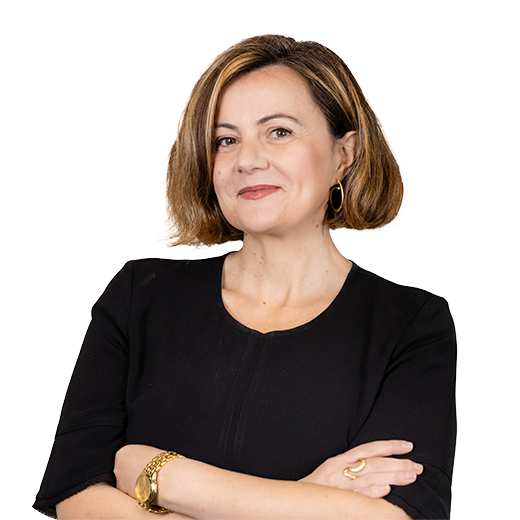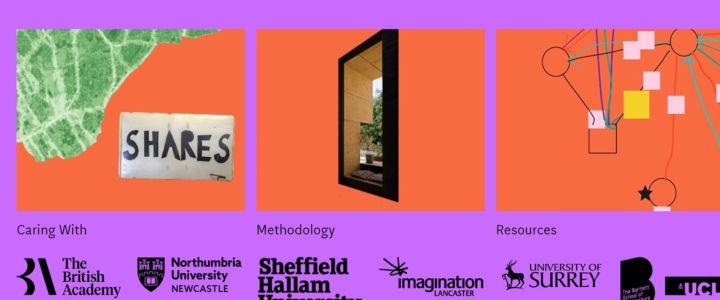Marianna is a Senior Lecturer at the MA Architecture & Urbanism, a registered Architect (ARB) and the MSA Department International Lead.
Marianna’s extensive research on cities embodies a holistic understanding of urbanism, from perception, operation, and the vision for Truly Smart Cities. As the founder and leader of the Prototype Urbanism Lab at MAAU, she implements innovative approaches in generative technologies, with a particular focus on AI Urbanism. Her commitment to engineering Liveable and Truly Smart Cities drives her interdisciplinary engineering approach, which develops urban scenarios designed to inform and shape effective urban policy for cities today and in the future.
Through collaborations with local policymakers, City Councils in Lancaster, UK, the WHO, and the Municipality of Karystos, Greece, Marianna’s research seamlessly brings together theory and practice, demonstrating tangible impact on communities and highlighting the positive changes design can bring to people’s needs and aspirations. Her focus on addressing international agendas while remaining attuned to local contexts is central to her decision-making in the urban transformation. She is dedicated to reducing inequality and tackling urgent issues such as the climate emergency and global health, aligning her efforts with the Sustainable Development Goals.
Marianna believes that cities can foster livability and future urban processes through engineering the urban context. Her work aspires not only to initiate meaningful change but also to empower communities, ensuring participation toward a smarter, more livable, and inclusive future.
Marianna has been part of the awarded ’Caring-with cities’ project, funded by the British Academy UK, where she focused on the Lancaster case study and the Lancaster City Vision. In this role, she explored policy design for caring practices that extend beyond traditional institutional care. Additionally, she has participated in several EPSRC projects, including Liveable Cities, Assessing the Underworld, and the EPSRC IAA Impact Acceleration Fund for Green Infrastructure Corridors, as well as collaborative efforts with the UK Collaboratorium for Research on Infrastructure in Cities (UKCRIC).
She has led impactful workshops, including the Smart Cities Alliance in Birmingham, and co-organised AI Urbanism workshops at the MSA. Marianna has shared her findings through publications in reputable international journals and at various conferences. She has also been invited to present her research at esteemed institutions, including the University of Birmingham, University of Liverpool, University of Coventry, Donghua University in Shanghai, and Nottingham University Ningbo in China, as well as the University of Xi’an Jiaotong in Suzhou, China.
Prior to her academic career, she was involved in large urban development projects in China -Twin Cities of 3.5 million square meters, Kunming (also Shanghai and Xiamen). She also worked at the Al Falah project, a 12.5 million-square-meter development for local populations in Abu Dhabi, UAE. Before her international experience, she worked at architectural organisations in the UK (ATKINS) and at other architectural practices.
Academic and professional qualifications
- Fellowship of the HEA (FHEA) Post Graduate Certificate in Academic Practice PG CAP.
- Scholarship of Practice an Academic Curriculum Enquiry (SPACE) “Decolonising the Architectural Curriculum”.
- PhD Civil Engineering 2019 University of Birmingham, UK
- PG Dip Architecture (International) RIBA II 2008 Huddersfield University, UK. Higher Commendation
- BA Hons Architecture RIBA I 2005 Huddersfield University, UK
- BA Hons Interior Design 2001 De Montfort University, UK
Previous Employment
- Lecturer, Urban Design Policy – Lancaster School of Architecture, UK. 2020-2023
- Research Fellow. University of Birmingham, UK, Department of Civil Engineering.Strategic Placement for Cities Impact: Birmingham City Council.“Monitoring Birmingham’s metabolism as it ‘goes for gold’ 2022”. 2018-2019
- Research Associate ‘Liveable Cities’ EPSRC (EP/J017698)of Birmingham, UK, Department of Civil Engineering. 2007-2008
- Lecturer BA Interior Design Raffles Design Institute, 东华大学, Donghua University Shanghai. 2012-2014
- Senior Architect, GDG Ltd Shanghai, China. 2011-2012
- Project Leader in Twin Cities, Architecture, CADI, Kunming, China. 2010-2011
- Architectural Designer, GHM Ltd Abu Dhabi, UAE, RIBA I &II. 2009-2010
- Architectural Designer, ATKINS, Leeds, UK, RIBA I. 2008-2009
Prizes and awards
- First Prize – Award in Sustainability (Peter Stead Award, Civic Society, Huddersfield) 2008 Huddersfield University, UK
- Higher Commendation PG Dip ArchIitecture (International) “Workers’ Library in Al Shindagha, Dubai” 2008 Huddersfield University, UK
Editiorial Board membership
- Reviewer ‘Smart Infrastructure’ Institute of Civil Engineers Journal
- Reviewer Behaviour & Information Technology’ journal Taylor and Francis
- Reviewer ‘Journal of Urban Technology’ Routledge Taylor and Francis
Membership of professional associations
- Architect ARB Registered, Membership number 098038B
- Architect TEE Hellenic Chamber of Architects Registered, Membership number 134720
- Member of the International Society for Urban Health ISUH
Postgraduate teaching
Prototype Urbanism Studio Lab Lead: we are using digital technologies, AI, and computational urbanism to implement liveable solutions in the urban context.
Cities and Urbanism: Ideologies and Futures Unit Lead (2023-4): This unit explores contemporary urban practice and reflects existing theories aiming to approach today’s and future global urban complexities.
Dr Cavada is interested in supervising PhD students who wish to conduct research in AI Urbanism, Smart cities, Liveable cities, Interdisciplinary research, Urban Engineering, and related areas.



